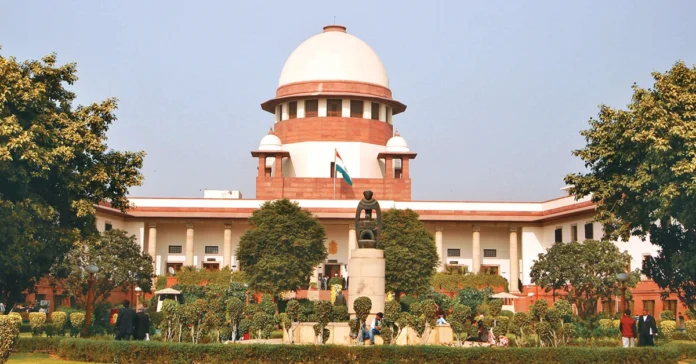The Supreme Court on Monday firmly upheld the government’s ethanol-blending fuel policy, rejecting a Public Interest Litigation (PIL) that sought the continued supply of ethanol-free petrol for older vehicles. The decision marks a decisive judicial endorsement of India’s transition to E20 fuel—petrol blended with 20% ethanol—a policy that is central to the country’s clean energy roadmap.
The PIL, filed by advocate Akshay Malhotra, did not object to the wider adoption of blended fuel but urged that vehicles manufactured prior to April 2023 be exempted, citing technical incompatibility. Senior Advocate Shadan Farasat, appearing for the petitioner, relied on a NITI Aayog report of 2021 which had flagged potential challenges in using E20 for older engines. The report pointed to issues such as fuel system corrosion, deposit formation, and a reduction in mileage by up to 6%, underscoring that existing vehicles were not calibrated to handle higher ethanol content.
The petition further alleged that the abrupt phasing out of ethanol-free petrol (E0) and even lower blends like E10 had left consumers without a viable choice. It also criticised the absence of clear fuel labelling at retail outlets, arguing that motorists were being compelled to purchase E20 without informed consent. For many car owners, particularly those with vehicles manufactured before flex-fuel compatibility standards, this raised concerns about engine life, efficiency, and safety.
Countering the challenge, Attorney General R. Venkataramani defended the policy as a product of extensive consultation, balancing energy security, environmental imperatives, and the interests of farmers. He highlighted that ethanol production largely derives from surplus sugarcane, offering a critical boost to rural incomes while also reducing India’s dependence on imported crude oil. The Attorney General went so far as to caution against “foreign influence” shaping domestic fuel strategies, underscoring that India must pursue self-reliant pathways in its energy transition.
The bench comprising Chief Justice B. R. Gavai and Justice K. Vinod Chandran was unconvinced by the plea, noting that policy decisions of this magnitude—rooted in environmental priorities and national interest—cannot be lightly interfered with. The Court accordingly dismissed the PIL, bringing an end to the challenge at the threshold stage.
The ruling has significant implications for millions of vehicle owners, particularly those driving pre-2023 cars and two-wheelers, who may face performance variations under the new fuel regime. However, for the government, the judgment provides judicial backing for its ambitious target of achieving 20% ethanol blending by 2025, a cornerstone of India’s commitments under the Paris Agreement to curb emissions and accelerate renewable energy use.
The case also reflects a broader global debate on ethanol-blended fuels. While countries such as the United States and Brazil have long pioneered ethanol adoption, concerns remain about mileage efficiency and potential engine wear, especially in older fleets. In India, automakers have acknowledged minor reductions in fuel efficiency but maintain that vehicles remain safe and operational under E20 conditions.
By dismissing the PIL, the Supreme Court has effectively prioritised the long-term environmental and economic gains of blended fuel over the transitional inconveniences flagged by the petitioner. The decision reinforces the judiciary’s deference to the executive in matters of energy policy, while signalling to consumers that the country’s shift toward sustainable fuel alternatives is now irreversible.


